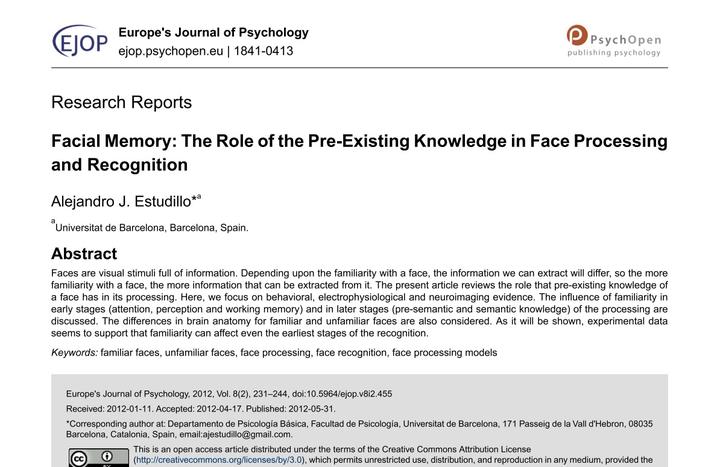
Abstract
Faces are visual stimuli full of information. Depending upon the familiarity with a face, the information we can extract will differ, so the more familiarity with a face, the more information that can be extracted from it. The present article reviews the role that pre-existing knowledge of a face has in its processing. Here, we focus on behavioral, electrophysiological and neuroimaging evidence. The influence of familiarity in early stages (attention, perception and working memory) and in later stages (pre-semantic and semantic knowledge) of the processing are discussed. The differences in brain anatomy for familiar and unfamiliar faces are also considered. As it will be shown, experimental data seems to support that familiarity can affect even the earliest stages of the recognition.